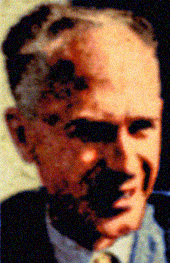Drivers’ strike halts delivery of New York papers
Eight major dailies hit; conference breaks up without agreement
…
Eight major dailies hit; conference breaks up without agreement
…
Washington –
Rep. Hamilton Fish (R-NY) today resigned from the House Committee on Foreign Affairs:
…in order to devote my entire time in the new Congress, as a member of the Committee on Rules, to the restoration of representative and Congressional government in the United States.
He had been a member of the Foreign Affairs Committee 22 years and was its ranking Republican.
Miners and operators still dispute terms of 6-day week
…
Threat against Australia called main enemy battlefront
By A. T. Steele
…
Allied air forces carry brunt of fighting
By Brydon C. Taves, United Press staff writer
…
Chungking, China –
Two hundred Japanese troops were killed and hundreds of others were wounded when U.S. bombers attacked enemy barracks at Yochow, in North Hunan Province, Nov. 25, the Chinese Central News Agency reported today.

By Ernie Pyle
WITH U.S. FORCES IN ALGERIA (by wireless) – When Ralph Gower was a little fellow in Arkansas, a deaf man lived across the street.
The man could read lips, and Ralph learned the trick from him. He did it mainly to show off before the other kids.
A quarter of a century has passed, and today Sgt. Ralph Gower sits on the edge of a folding cot in a tent way out in the field in Africa.
It is a hospital tent, and wounded soldiers in red bathrobes loll around in it. Ralph Gower can talk to them, and he can understand what they say, solely because he learned lip-reading as a prank when he was a child. For he is newly deaf, from the explosion of an enemy shell.
When I went to see him, he had been deaf only a few days, but lip-reading was already perfect. It had all come back to him across those 25 years. We talked for half an hour and he never made a single mistake.
Sgt. Gower escaped without serious wounds other than the loss of his hearing. They say there is a 50-50 chance of recovering, but even if he doesn’t, he’s got two strikes on deafness to begin with.
Into hell and back out again
Ralph Gower is 37. He was born in Truman, Arkansas, but his home address is now Route 3, Box 832, Sacramento, California. He used to be a draftsman and a machine-screw operator. He served a hitch in the Army in his early 20s, and joined up again as soon as England and Germany started fighting. He is a machine-gun sergeant.
Gower came to Africa aboard one of a group of combat boats that got into trouble trying to take an Algerian harbor. Those who lived to tell the tale were miraculously lucky.
“Do you want to hear what it felt like?” Ralph asked.
I sat down on the edge of the next cot. “Sure, I do. What did it feel like?”
“It felt just like going into hell and back out again,” he said.
The boys around the tent all laughed loudly. That startled me, for I couldn’t see anything to laugh at. But gradually I caught it.
It seems that Sgt. Gower’s deadpan Arkansas wit keeps the whole tentful howling day and night. He never says anything obviously clever. He just says things with an odd twist. He never cracks a smile. His expression never changes.
Six dozen wounded boys gathered on nearby cots to listen as Ralph told me the whole story.
He said:
We were all down in one of the compartments of the boat. That French ship came right up against us, and one of their shells came through the side. The thing exploded right in my face.
Some of the wounded soldiers in the tent had been through the same lethal nightmare he was describing, but they laughed at that crack just as though Bob Hope had said it.
Ralph went on:
I never heard a sound. It just went “shisht-ppfftt.” That’s all I ever heard. Then I passed out.
When I came to everything was quiet. I thought the battle was over. The ship was full of ammonia and smoke. You couldn’t hardly breathe. I liked to choked to death. My heart was shooting pains out in all directions. [laughter] I couldn’t get enough air in my lungs. I couldn’t even get enough smoke, for that was all I was getting anyhow. [more laughter]
They can still laugh
I finally started climbing a ladder. When I stuck my head out on deck, I couldn’t hear anything, but the air was full of tracer bullets. Then I realized there were dead men lying on the deck. I passed out. That fresh air was too much for me. [laughter]
Thus, the story went. Censorship doesn’t permit repeating the full details. It was getting late, and we shook hands.
“Are you married?” I asked.
“Am I married?” he said. “No, I’m single. I mean to say I’m sensible.”
The wounded boys all roared.
Sometimes you leave a battle hospital feeling horrible inside, but I stepped out of that tent, under millions of African stars, feeling good about Americans who can go “into hell and back out again” and still laugh about it.